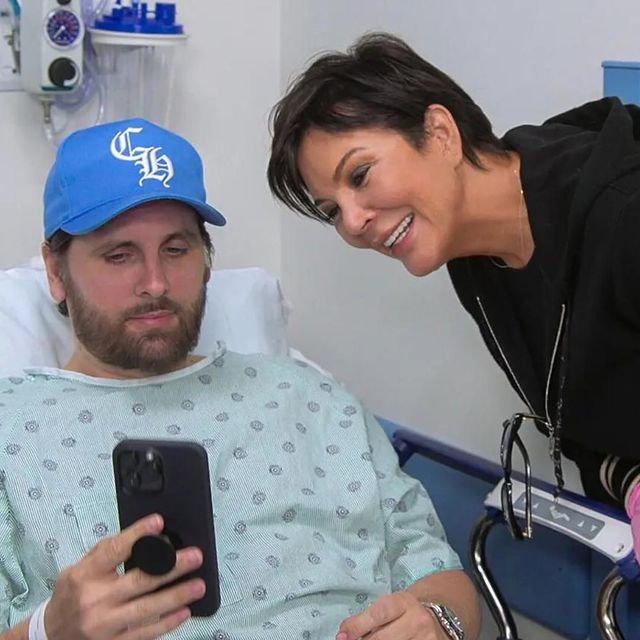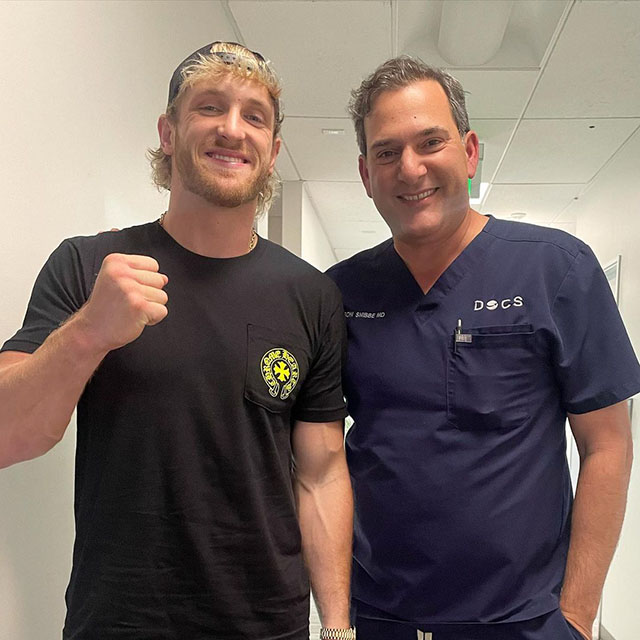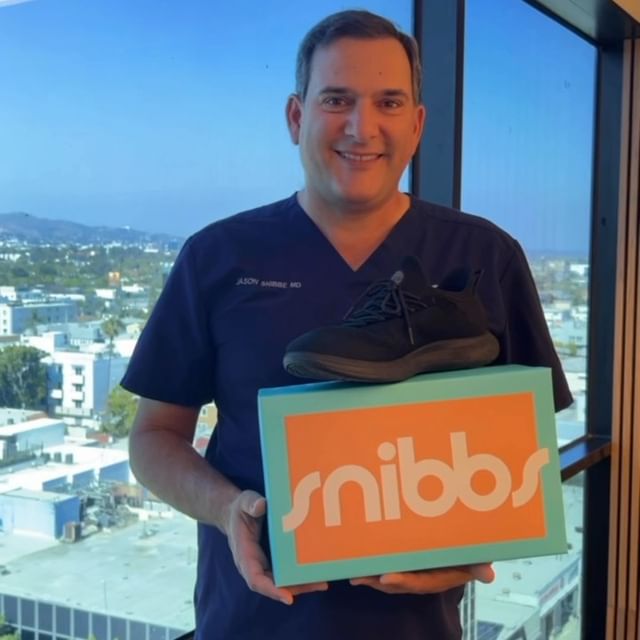Robotic Total Knee Replacement
in Los Angeles, CA
The future of knee replacement surgery is here, offering hope for all those experiencing knee pain and instability caused by severe knee joint degeneration, injuries, and other conditions.
Robotic total knee replacement combines robotics with orthopedic expertise to improve knee function and allow patients to resume an active life.
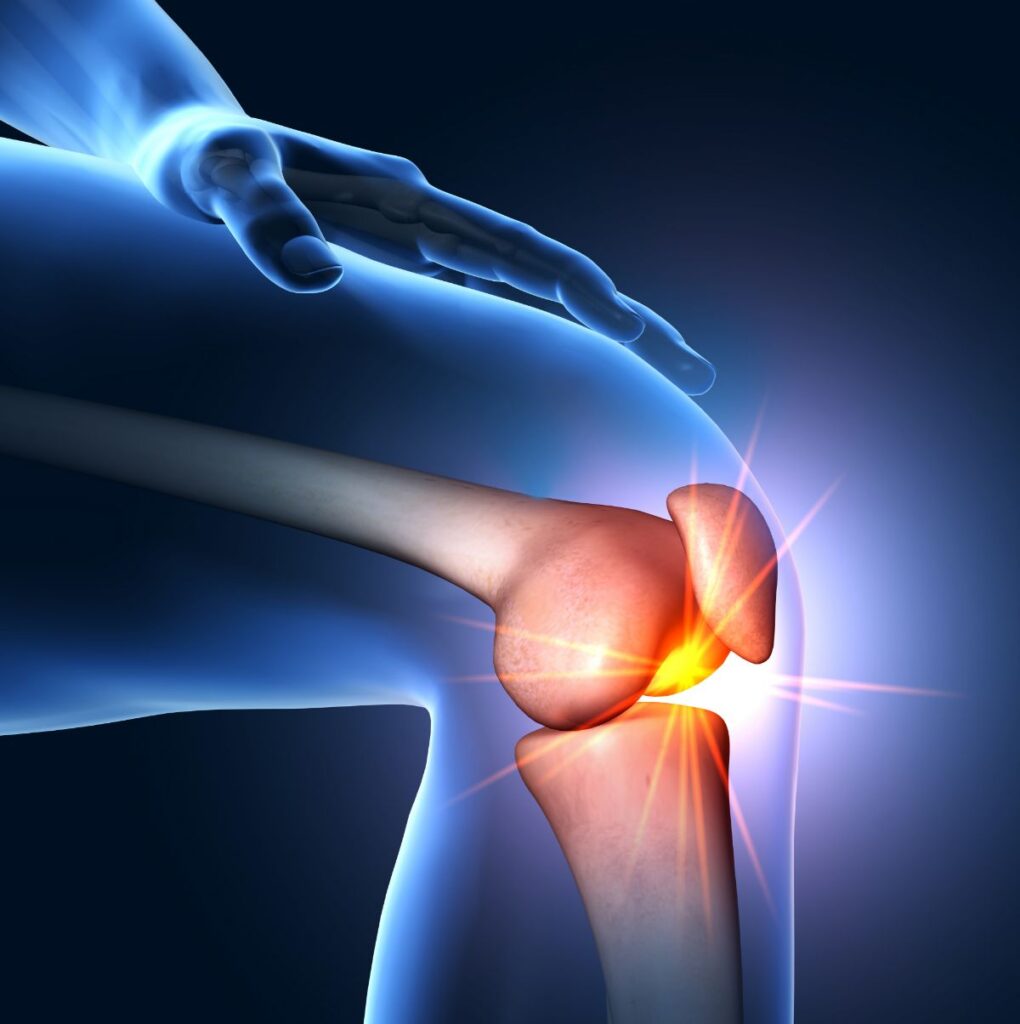
What Is Robotic Total Knee Replacement?
Robotic total knee replacement is an advanced surgical procedure designed to restore knee joint function and alleviate pain. This procedure offers several advantages over traditional knee replacement surgery, including improved bone-cut accuracy, implant positioning, and soft tissue balancing, resulting in better outcomes and faster recovery.
If you are considering this type of knee replacement surgery, it’s essential to consult an orthopedic specialist like Dr. Snibbe to determine if it is the right option for you.
Are You a Candidate for Robotic Total Knee Replacement?
To be eligible for robotic knee replacement, you should be a healthy non-smoker and as close to your ideal weight as possible. Your ability to follow pre and post-operative instructions, as well as taking part in any necessary physical therapy, is also crucial.
If you smoke or Dr. Snibbe determines your BMI (body mass index) is an issue, you can still qualify for this procedure. However, you must lose a certain amount of weight and quit smoking before being scheduled for surgery.
Arrange for a robotic knee replacement consultation in Los Angeles with Dr. Snibbe by calling (310) 860-3048 and learn more!
Benefits of Robotic Total Knee Replacement
There are several advantages to robotic total knee replacement, some of which include the following:
- Significant, if not complete, pain relief
- Restored joint function and mobility
- Regained the ability to enjoy an active lifestyle.
- Longer-lasting implant improvement compared to traditional knee replacement methods.
How Is Robotic Total Knee Replacement Performed?
Before Surgery
Before your robotic total knee replacement surgery, patients must undergo a series of pre-operative preparations. This typically includes a thorough medical evaluation to assess overall health and identify any potential risk factors. Patients may be required to make necessary lifestyle adjustments, such as discontinuing certain medications or addressing underlying medical conditions.
During consultations, patients are informed about the procedure, potential risks, and expected outcomes. Dr. Snibbe will listen carefully to any questions and concerns to ensure that patients clearly understand the surgery.
If you are considering robotic total knee replacement, expect to prepare for the procedure by taking these additional steps:
- Complete all pre-operative forms.
- Review your medications with Dr. Snibbe and stop those that may increase bleeding.
- Be examined by your primary care doctor to clear you for surgery
- Have your oral health evaluated (to check for infection).
- Complete any required imaging and laboratory tests.
- Make arrangements for your recovery.
- Fast as directed the night before surgery.
Your Robotic Total Knee Replacement Surgery
Robotic total knee replacement is performed under anesthesia to ensure your comfort. Anesthesiologists work closely with the surgical team to select the appropriate type of anesthesia, whether regional or general anesthesia, depending on your specific medical history and the extent of surgery. Once the anesthetic is administered, Dr. Snibbe will perform the following seven steps:
- Incision and exposure – The surgical procedure begins with a carefully planned incision over the knee, allowing access to the damaged joint. In recent years, less invasive techniques have been developed, resulting in smaller incisions and reduced scarring. These techniques can also lead to a faster recovery.
- Robotic assistance – Advanced technology plays a pivotal role in the success of this procedure. An automated system assists Dr. Snibbe throughout surgery and provides real-time feedback, enabling highly precise bone resection and implant positioning. A 3D model of your knee joint improves accuracy while determining the optimal implant size and alignment. This level of precision contributes to better long-term outcomes for the patient.
- Joint Assessment – During the surgery, Dr. Snibbe will assess the damaged knee joint and make any adjustments needed based on his findings. This flexibility ensures that the procedure is tailored to your specific needs.
- Bone Reshaping and Resurfacing – The next phase involves reshaping and resurfacing the damaged bone surfaces to prepare them for the implant. The robotic system assists our surgeon in precisely removing damaged bone and cartilage while preserving healthy tissue.
- Implant Placement – The artificial knee components are positioned and secured after the bone surfaces have been prepared. The choice of implants may vary depending on your individual needs. The robotic system provides the optimal alignment and placement of these components, which are vital for long-lasting results.
- Soft Tissue Balancing – The robotic system helps Dr. Snibbe achieve the optimal balance of the surrounding ligaments and tendons. Proper soft tissue balancing is crucial for the new knee joint to function correctly and comfortably.
- Closure – After implant placement and soft tissue balancing, the surgical team carefully closes the incision, typically using sutures or staples. Special care is taken to minimize the risk of infection.
Recovery From Robotic Total Knee Replacement
Immediate Postoperative Recovery
Following surgery, you will be closely observed in the recovery room. Pain management is a priority, so medications will be administered as needed to ensure your comfort. You may begin physical therapy before leaving the hospital or surgical center. You will receive post-surgical instruction and guidance on wound care, which needs to be strictly followed for the best outcome.
Physical Therapy
Physical therapy and rehabilitation are integral to the recovery process. Our experienced therapists will help you regain strength, mobility, and function in your new knee. The timeline for rehabilitation varies from patient to patient but is essential for a successful outcome.
Our team will monitor your condition closely and schedule follow-up visits to review your progress and review postoperative x-rays with you.
The following tips can help you experience a more favorable recovery:
- Before your surgery, prepare plenty of nutritional, reheatable meals and pick up your prescribed medications.
- Prepare a comfortable resting place with everything you need easily reachable.
- Arrange for help around the house for at least the first two days after your procedure.
- Follow the provided instructions when caring for your incisions and dressings.
- Avoid strenuous activities.
Individualized benchmarks ahead of removing certain restrictions will be set by our surgeon, nurses, and physical therapists.
What Results Can I Expect After Robotic Total Knee Replacement?
Many patients who have undergone robotic total knee replacement report high levels of satisfaction with their results. They typically report reduced pain, increased mobility, and a significantly improved quality of life.
How Much Does Robotic Total Knee Replacement Cost?
The cost of robotic total knee replacement varies widely and depends on many factors. However, you will receive an accurate cost estimate after you consult with Dr. Snibbe.
Your Los Angeles Robotic Total Knee Replacement Specialist
You may be familiar with Dr. Snibbe because of his appearances on Good Morning America and CNN. Many celebrities and professional athletes have relied on his expertise to alleviate pain and improve mobility.
Dr. Snibbe has the skill and experience you want when undergoing robotic total knee replacement and is known for his commitment to safety and excellence.
Dr. Snibbe currently accepts new patients and welcomes those needing evaluations and robotic total knee replacement surgery from the Los Angeles, Hollywood, and San Fernando Valley areas. He also has patients who travel nationwide to receive orthopedic care.
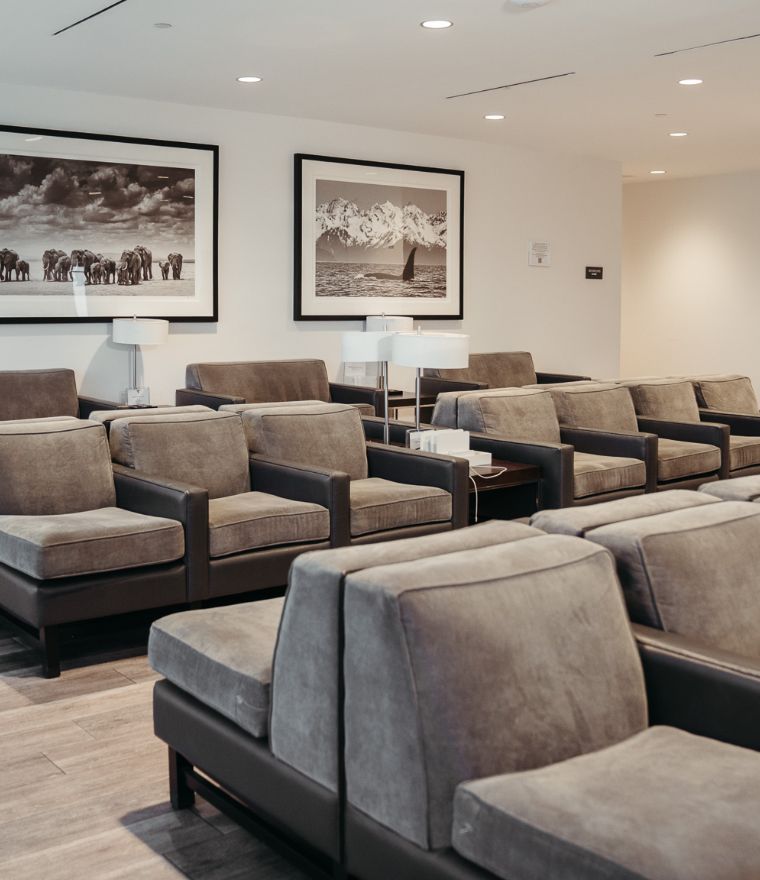
Call (310) 860-3048 today and schedule your orthopedic consultation in Los Angeles, California.

